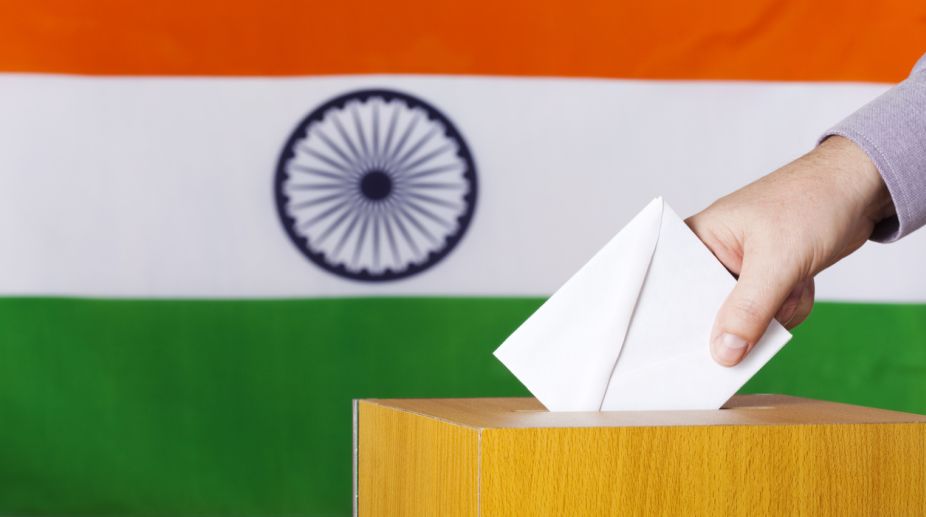About 25 million Non-resident Indians will get proxy voting rights to participate in Indian elections if the Modi government’s recent decision to this effect passes muster in Parliament. Last week, Attorney General K.K. Venugopal told the Supreme Court that the bill to amend the Representation of the People Act would be introduced in the upcoming winter session of Parliament.
The Supreme Court took up the NRI voting rights based on public interest litigation in 2014 and later asked the Election Commission to examine the proposal.
Advertisement
Commission shortlisted four possible scenarios of which the embassy option was ruled out because of the logistics involved; Internet voting was rejected because of the hacking fears and the postal ballot idea was rejected due to the time factor and physical transmission of papers. On 3 August 2017, the Modi government announced that it would permit proxy voting for registered NRIs. Till now proxy voting was limited to Army personnel.
There are doubts whether the government will be able to push the proposal through because there is no consensus on this controversial issue. Many opposition parties including the Congress had opposed it earlier in Parliament during discussions.
Secondly, though the BJP has the adequate numbers in the Lok Sabha, it does not have a majority in the Rajya Sabha where the opposition is strong and belligerent. Thirdly, the opposition argues that while the Government favours the proxy voting for NRIs, it is silent about any provision for millions of migrant workers within India who are unable to exercise their franchise. India has around one million temporary internal migrants according to one study.
Interestingly when the Election Commission held interactions with political parties on electoral participation for NRIs many parties including the Congress, BSP and the Left parties did not support the proposal while the BJP was in favour of it. The opposition parties felt that there was no guarantee the proxy voter would vote as per the wishes of the actual voter. The Congress feels that postal ballots are vulnerable to impersonation and proxy voting defeats the dictum of secret ballot guaranteed to every citizen by the Constitution.
The CPI leader D Raja says, “Proxy is proxy and right to vote is a conscience vote. Conscience vote is a secret vote. What do you mean by ‘proxy vote’?” The CPI-M wants the present system of voting for NRIs to continue. The BSP also opposed the move. Even former Chief Election Commissioners S.Y. Quereshi, T.S. Krishnamurthy and N.Gopalaswamy have expressed concern that it would violate the model code of secret ballots. The Indian Diaspora has been pressing for participation in Indians elections and dual citizenship. The UPA government allowed NRIs to vote in 2010, when parliament amended the Representation of People Act for this purpose.
However, only 11,000 of the 24,348 registered electors went to the polling booth in the 2014 general elections. Kerala, Punjab, and Gujarat are the three States that have a major expatriate population and the experiment would have considerable impact on the election process in these States. It would also have a great impact on the electoral fortunes of the Left Democratic Front and the United Democratic Front. The BJP is trying to get a foot-hold in Kerala.
The measure, if cleared by Parliament, will certainly bring electoral dividends to the ruling BJP and strengthen Narendra Modi’s support base among overseas Indians. The BJP has been wooing the Diaspora for a long time. Since Modi took over, he has stepped up his efforts to organise the Diaspora support further. His successful public meetings during visits abroad including the dramatic 2014 Madison Square Garden meeting in New York show how carefully Modi has been cultivating this constituency. Even Atal Behari Vajpayee had cultivated the Diaspora during his six year regime from 1998 to 2004. In 2003 the Vajpayee government promised Dual Citizenship for NRIs but instead created Overseas Citizen of India and Person of Indian Origin identifications. In 2015 the Modi government merged the PIO into the OCI making them one. There was a lot of enthusiasm from BJP supporters in the US, UK and other countries during his 2014 campaign and they had supported Modi with their huge contributions also.
Now it is the pay back time for the BJP. It is not as if only Modi is wooing the Diaspora. Indians abroad have been showing interest in Indian elections and there were several volunteers who had come to India to help the Aam Aadmi party chief Arvind Kejriwal during the 2015 Delhi elections. The Congress Vice President Rahul Gandhi also had been cultivating this constituency during his September visit to the US.
Once the measure goes through, the Commission would have to evolve a fool-proof verification system and also define who the proxy should be – whether it will be a family member or a person authorised by the NRI.
It would also have to fix the number of votes a proxy could cast in an election. Safeguards against impersonation need to be put in place. Simultaneously the government also has to address voting rights for domestic migrants. Parliament should ensure justice to all voters while passing the amendments.











